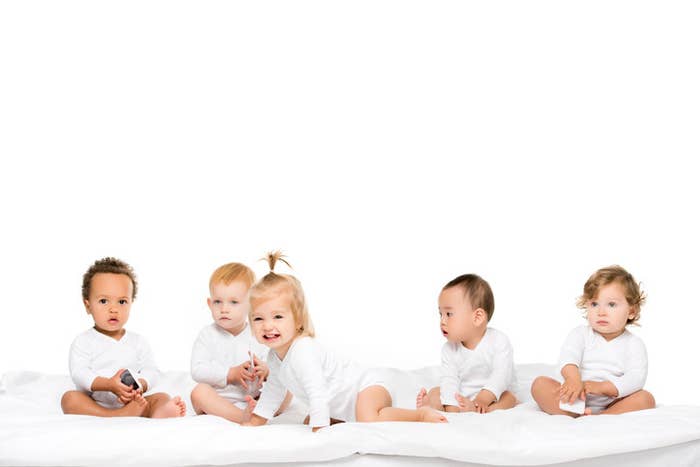While young Australian adults seem to consider themselves very well informed on sexually transmitted diseases and contraception, a new study has shown that they're pretty poor at understanding their own fertility and knowing when it realistically becomes harder to have children.
In a survey of over 1200 male and female students from one university, Victorian researchers found that even though 90% of participants wanted children later in life, most of them underestimated the impact that age has on fertility.
Less than half of the participants correctly estimated the age that women's fertility begins to decline significantly (35 to 39 years-old), and less than a fifth knew when male fertility declines (45 to 49 years-old).
Dr Eugenie Prior, lead author of the paper and a researcher in obstetrics and gynaecology from the University of Melbourne, told BuzzFeed News she believes that this underestimation could affect these students' life plans down the track.
"Our study really confirmed that young people do want to have children but there are so many things they want to do before that happens that they might be delaying it until too late".
For women, the decline in fertility tends to begin at around 32 years old and this decline speeds up at 35 years-old. By 40, fertility has declined by 50% for most women.

"Things like birth defects and other medical complications during pregnancy and birth can also be impacted by the increasing age of the parents," said Prior.
A trend has seen Australians having children increasingly later in life over the past decade.
The average age at which women first become mothers is on the rise in Australia, with an addition of almost one year in average age from 2004 (28 years old) to 2015 (28.9 years old).
The average age of women giving birth in general has now reached 30 (with one in five mothers giving birth over the age of 35).
The students interviewed in the study also overestimated the effectiveness of assisted reproductive treatments like IVF after one treatment cycle (statistics from New Zealand and Australia only show a 5% success rate for IVF between the ages of 40 and 44 years, with a less than 1% success rate over 44 years-old).
The authors believe that this overestimation of IVF success is related to headlines about 'miracle babies' born to older mothers that tend to drown out the stories of women who do not conceive successfully.
Prior believes that these results may come down to a lack of fertility education attached to education about sexually transmitted diseases and contraception.
"I think we're so often told how not to get pregnant we think it will be so easy when we actually start trying and it's just not the case necessarily," she said.
"We need to actually have a realistic idea about what the limits of our fertility are and how we can protect it."
Prior notes that while it may be galling for young people (and especially young women) to discuss their fertility and life plans so far in advance, she believes that conversations around fertility are important to ensure there are fewer problems later in life.
"I think if it's done in a sensitive way... if we start having these conversations more and are able to support young men and women to become parents when it's biologically ideal, that's the ideal."
